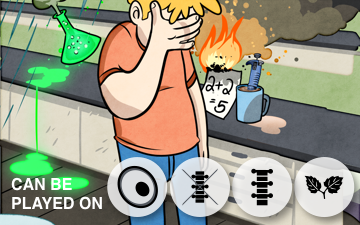Human error has been cited as a primary cause or contributing factor in disasters and accidents in industries as diverse as nuclear power (e.g., the Three Mile Island accident), aviation (see pilot error), space exploration (e.g., the Space Shuttle Challenger Disaster and Space Shuttle Columbia disaster), and medicine (see medical error). Prevention of human error is generally seen as a major contributor to reliability and safetyof (complex) systems
Human error means that something has been done that was “not intended by the actor; not desired by a set of rules or an external observer; or that led the task or system outside its acceptable limits”.[1] In short, it is a deviation from intention, expectation or desirability.[1] Logically, human actions can fail to achieve their goal in two different ways: the actions can go as planned, but the plan can be inadequate (leading to mistakes); or, the plan can be satisfactory, but the performance can be deficient (leading to slips and lapses).[2][3] However, a mere failure is not an error if there had been no plan to accomplish something in particular.[1]
(From Wikipedia, June 2016)


